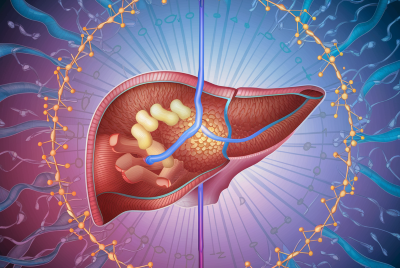Ketogenic Diet for Diabetes
The ketogenic diet (keto), characterized by a dramatic reduction in carbohydrates and a corresponding increase in fat intake, has taken the health world by storm. While its effectiveness for weight loss is a topic of ongoing debate, its potential impact of ketogenic diet for diabetes has sparked significant interest. However, for individuals with diabetes, considering keto requires careful evaluation of both the potential benefits and potential drawbacks.
Understanding the Rationale:
The cornerstone of the keto diet lies in its influence on blood sugar control. By significantly restricting carbohydrates, the primary source of blood sugar (glucose), the body is forced to seek alternative energy sources. This metabolic shift leads to the production of ketones, fuel molecules derived from the breakdown of fat. In theory, for people with type 2 diabetes struggling to manage blood sugar levels, keto’s ability to lower carbohydrate intake could be advantageous.
A Glimpse at the Benefits:
- Improved Glycemic Control: Studies suggest that the keto diet can lead to significant reductions in blood sugar and HbA1c (a measure of long-term blood sugar control) in some individuals with type 2 diabetes. This can potentially reduce reliance on diabetes medications and improve overall health outcomes.
- Weight Loss: Keto often results in weight loss, a significant benefit for many people with type 2 diabetes, as excess weight can worsen blood sugar control.
Weighing the Potential Concerns:
However, the ketogenic approach isn’t without its challenges for those with diabetes:
- Diabetic Ketoacidosis (DKA) Risk: This is a serious complication where the body produces excessive ketones due to a lack of insulin. People with type 1 diabetes or those taking medications like SGLT-2 inhibitors, which promote ketone production, are at a higher risk of DKA with keto. Close monitoring and medical supervision are crucial.
- Nutrient Deficiencies: A strict keto diet might limit intake of fruits, vegetables, and whole grains, essential sources of vitamins and minerals. Careful planning and supplementation might be necessary to avoid deficiencies.
- Medication Adjustments: Keto can affect how diabetes medications work, potentially requiring adjustments by your doctor to maintain proper blood sugar control.
- Sustainability Concerns: The strict nature of keto can be difficult to follow in the long term, leading to potential yo-yo dieting and hindering long-term success.
Taking Calculated Steps:
If you’re considering a ketogenic diet for diabetes management, here are some crucial considerations:
- Doctor Consultation is Paramount: Before embarking on keto, especially if you have diabetes, consulting with your doctor is absolutely essential. They can assess your individual situation, potential benefits and risks, and guide you safely.
- Gradual Implementation: A sudden shift to a very low-carb diet can cause unpleasant side effects like fatigue, headaches, and constipation. It’s advisable to transition gradually under medical supervision.
- Blood Sugar Monitoring: Regular blood sugar monitoring is essential when following a keto diet with diabetes. This allows you to adjust your diet or medication as needed to maintain optimal blood sugar control.
- Focus on Whole Foods: Prioritize nutrient-rich whole foods like low-carb vegetables, healthy fats from sources like nuts, seeds, and avocados, and moderate protein intake. This helps ensure you’re getting the essential vitamins and minerals your body needs.
Exploring Alternatives:
The keto diet might not be the only path to successful diabetes management. Here are some well-established dietary approaches that can be equally effective:
- Mediterranean Diet: This heart-healthy diet emphasizes fruits, vegetables, whole grains, healthy fats from sources like olive oil, and lean protein sources. This balanced approach can contribute to improved blood sugar control and overall well-being.
- DASH Diet: Designed primarily for lowering blood pressure, the DASH diet can also positively impact diabetes management by promoting healthy eating habits, portion control, and a focus on nutrient-rich foods.
The Road Ahead:
The ketogenic diet’s impact on diabetes management remains an evolving area of research. While some studies show promise, long-term safety and efficacy require further investigation. The American Diabetes Association (ADA) currently doesn’t recommend a specific diet for diabetes but emphasizes a personalized approach that considers individual needs and preferences. They recommend a focus on healthy eating patterns that include a variety of nutrient-rich foods and portion control.
| Final advice: Ideally, Keto should not be a one-size-fits-all diet plan. The ideal is to have a personalized keto diet plan where your personal circumstances, needs and goals are taken into consideration in the plan. It must include an assessment of your body condition, daily physical activity level (couch potato, somewhat active, very active, etc.), gender, age, height, weight, dietary preferences (preferred types of meats, veggies, eggs, nuts, cheese, butter, etc.) Get your custom keto diet NOW. |
List of references:
*Westman EC, Yancy Jr WS, Mavropoulos JC, Marquart M, McDuffie JR. The effect of a low-carbohydrate, ketogenic diet versus a low-glycemic index diet on glycemic control in type 2 diabetes mellitus.
*Hussain TA, Mathew TC, Dashti AA, Asfar S, Al-Zaid N, Dashti HM. Effect of low-calorie versus low-carbohydrate ketogenic diet in type 2 diabetes.
Transparency Disclosure: This article was written with AI assistance in the research and outlining but with comprehensive editing, refining and fact-checking by the author to ensure accuracy and high-quality content.





